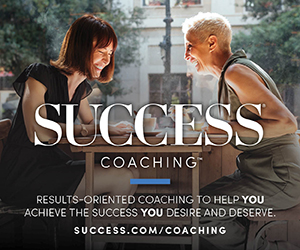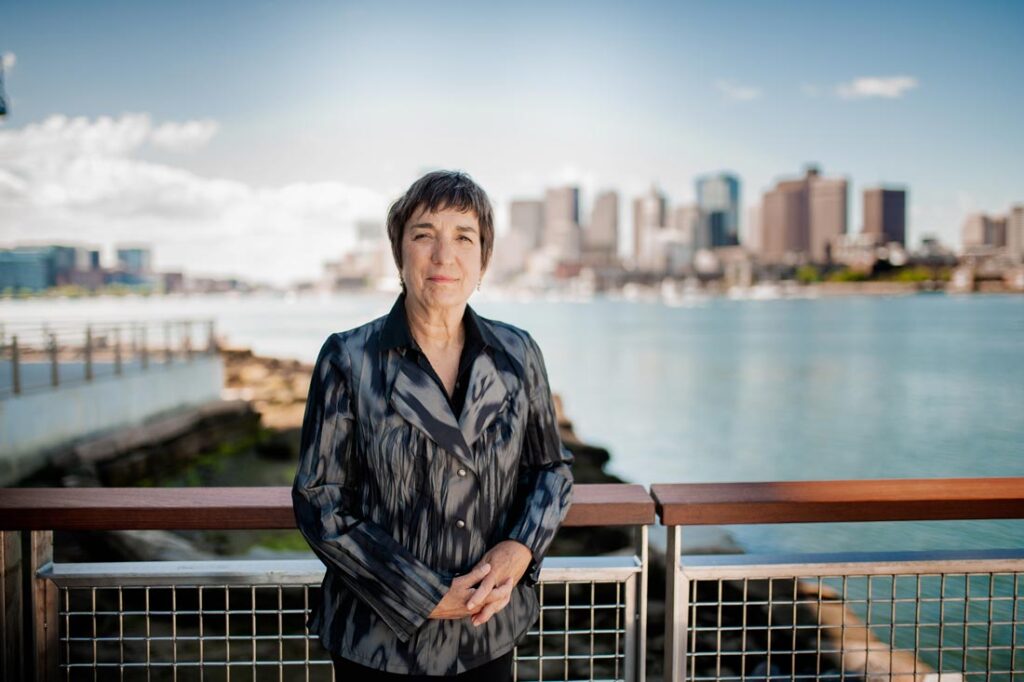As a young child, Kathy Abbott spent her summers on Cape Cod in Massachusetts. Her parents were environmental conservationists who helped her to appreciate nature. Abbott also had two aunts who brought her to the Cape beaches and woods. While exploring the natural habitats, her aunts would identify vegetation and animals. These interactions helped Abbott to notice and attune to her environment.
At age 14, Abbott’s family moved to Cape Cod full-time. In her new school, Abbott enrolled in a class at Falmouth High School called “Cape Cod Environment” that focused on horticulture, forestry, landscaping and geomorphology.
“It was when I was taking that class that I realized that this is what I wanted to do,” she says. A line under her yearbook photo underscored her life goal: to “save a tree.”
Kathy Abbott’s road to CEO wasn’t easy
Now at age 66, Abbott is the first president and CEO of Boston Harbor Now. Created in 2016, Boston Harbor Now is a merger of two nonprofit organizations—Boston Harbor Island Alliance and Boston Harbor Association. As the leader of the new civic nonprofit, Abbott oversees the Boston Harbor waterfront and the Boston Harbor Islands National and State Park.
Even though she’s now a successful CEO, the road to get there was long and bumpy. Abbott says she experienced discrimination on “multiple fronts” as an openly gay woman working in male-dominated conservative organizations.
Her first encounter with discrimination occurred after her sophomore year in college, when she tried to get a summer job working for the Department of Public Works (DPW) in Falmouth. Instead of allowing her to apply for a job, the DPW director said to her, “We only hire boys from the football team,” and suggested she “walk across the street and go get a job at the recreation department because that’s where the girls go.”
Abbott felt the full sting of that rejection. “I’ll never forget that quote,” she says. “I was gobsmacked that somebody would say that.”
Prior to applying, she had a five-week internship position as a laborer working for the National Park Service at the Minute Man in Concord, Massachusetts. “Luckily, I already had a job in the field, so I didn’t feel totally annihilated,” she says. She heeded the DPW director’s advice and got a job managing the playground at the Falmouth Recreation Department. The job was a blast, but it wasn’t enough.
So Abbott locked in two other jobs that summer—one as a manager of a local pool and the other as the forewoman of a landscape crew that also managed a greenhouse. “I would have rather worked for the park department, but that was a great summer,” she recalls.
Working her way up
Abbott’s first position for the Boston Harbor Islands was an internship as a park ranger for Gallops Island during her undergraduate program at University of Massachusetts (UMASS) in Amherst. “I did everything from picking up the trash on the beach every morning to giving talks and walks,” she says. Her job was a combination of educating people who visited the island along with enforcing the regulations. “ It was a great experience, and I loved it,” she says.
After graduating college, she worked as a park planner for the Boston Harbor Islands for 10 years. To further her education, she received a master’s degree in public administration from Harvard University. It was then that she had a “Goldilocks” epiphany when trying to figure out what type of environmental government agency she wanted to work for.
“National parks are too big. I’d never be able to make an impact or get anywhere, and clearly, municipal parks were too small. State parks were going to be just right,” she explains.
In 1991, Michael Dukakis was on his way out as governor of Massachusetts. It was an economic disaster, and with funding for government programs in flux, Abbott’s dual role as the assistant secretary and deputy commissioner for the Massachusetts Department of Environmental Management (DEM) wasn’t going well. “I thought—this was how naive I was—because I grew up there that I’d be the best person to take on this horrible task, not realizing what a personal toll that would take. It was brutal,” she says.
After almost two years in that dual role, Abbott weighed her options. “I’m a big believer that everybody should work in every sector. It makes you much more effective and able to work with each other,” she explains. “I really wanted to try nonprofits.”
Passion pays off
The next stop in her career journey was as vice president of programs for The School for Field Studies in Beverly, Massachusetts, an international study abroad program. “I hadn’t grown up with any money. So I hadn’t really traveled much at all,” she explains. “I got to see the world for about five years running around managing crises, because that’s what we’re doing—managing thousands of college age students in remote, incredibly exciting places.”
Even though Abbott loved traveling, she felt the urge to return working with the environment. “I just missed having a local impact. I grew up doing that, and I really missed it,” she says.
When the Boston Harbor Islands became a national park in 1996, the organization needed someone to oversee it. Abbott stepped in as the first president and CEO of the Island Alliance.
After six years in the position, Gov. Mitt Romney’s administration recruited Abbott to create a new organization called Department of Conservation and Recreation (DCR), which would manage the state parks in Massachusetts. “I ended up with this history of mergers, startups and turnarounds,” she says. “Not for the faint of heart.”
Indeed, things would soon become more challenging.
Facing discrimination
After gay marriage became legal in Massachusetts on November 18, 2003, Abbott married her partner of six years—a move “the Romney administration wasn’t really happy about,” she says.
Nothing was overtly said to Abbott about her new marriage, but she noticed subtle changes in how she was treated after her wedding announcement appeared in the newspapers.
Despite Abbott being in the top 10% of state employees, Romney asked her to resign due to poor snow removal of the parkway. Even though she sensed something like this would happen, she still wasn’t prepared for it.
“It was the best job I ever had. I loved it to pieces, and I’d probably still be there if things had gone differently,” she says.
Romney soon began running for president of the United States, which complicated Abbott’s search for a new job. When she interviewed for positions, her interviewers asked why she resigned. “Nobody wants to hire you to be their CEO if you might have been fired by the [potential] next president of the United States,” she says.
Despite these challenges, Abbott believes the experience shaped her. “I have absolutely no regrets, despite the impacts that it had on my career, because it taught me how important it is not to define yourself,” she says.
Kathy Abbott becomes Boston Harbor Now’s president and CEO
She eventually got a job at Tower Hill Botanic Garden in Massachusetts and created several new programs that more than doubled the number of annual visitors. All the while, she kept receiving calls asking her to accept the role as president and CEO of the newly formed Boston Harbor Now. Despite responding “no” the first few times, she eventually agreed.
Abbott says one of her goals as CEO is “to help people understand their impact on nature and nature’s impact on them.” She hopes the people in Boston will recognize the way the environment contributes to their social, environmental and economic health, and one of her most important goals is making sure everybody has access to those benefits.
Even as the CEO, she still goes back to her roots as a park ranger when necessary. “The No. 1 way people rate their park experiences is by the cleanliness of the bathrooms,” she says. So when she recently saw a dirty bathroom during one of her trips, she grabbed a broom and sponge and went to work.
That may sound surprising, but it all comes naturally when passion is at play. Abbott concurs. “Figure out what you feel passionate about, and pursue it because things will come to you,” she says. They certainly have for her.
Photo by Arlan Fonseca for Boston Harbor Now.



